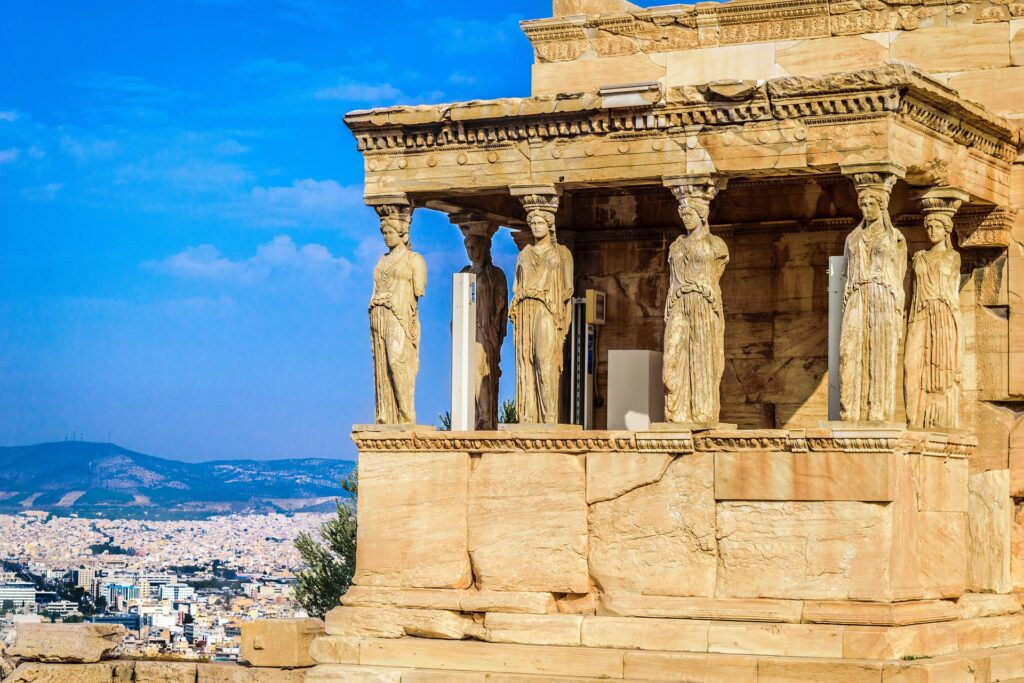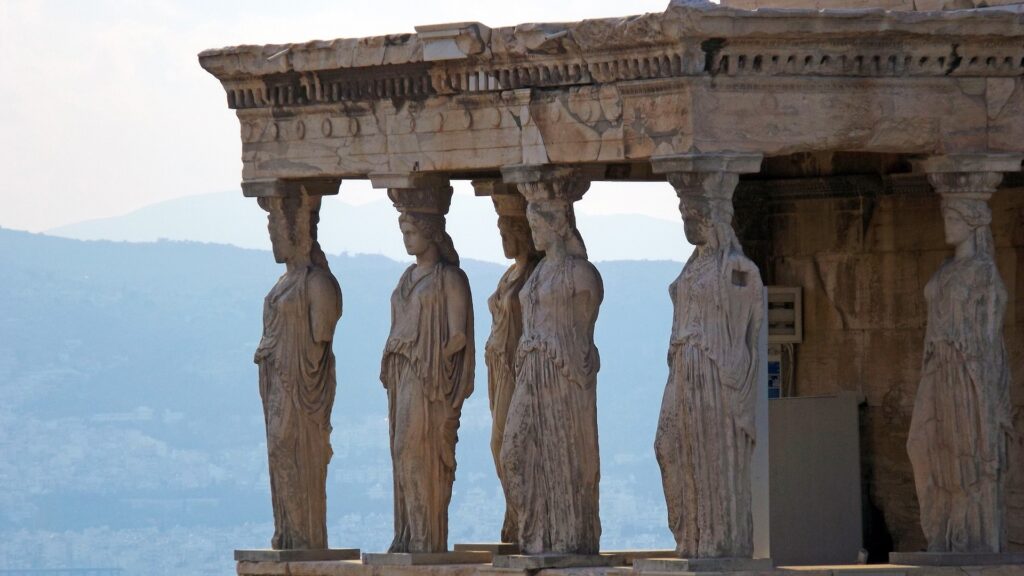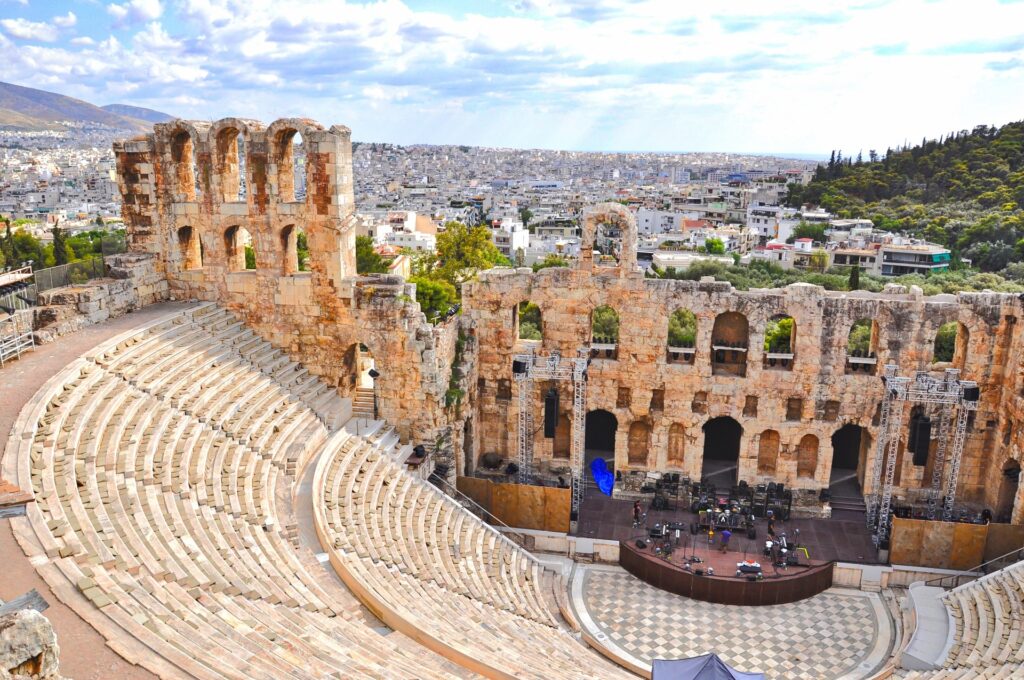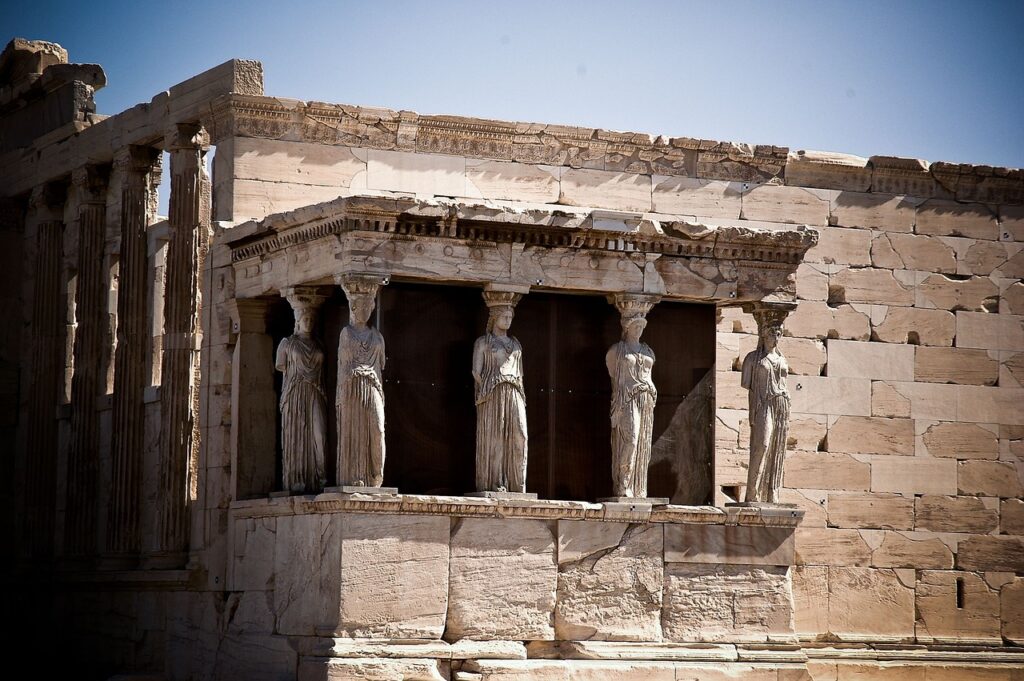Stepping into the Acropolis of Athens is like entering a time capsule that transports you back to the ancient world. This iconic archaeological site stands atop a rocky hill, overlooking the vibrant city of Athens. With its majestic temples, monumental structures, and rich history, the Acropolis is a testament to the enduring legacy of ancient Greece. Prepare to be captivated as you immerse yourself in the awe-inspiring wonders of this UNESCO World Heritage Site.

The Acropolis, meaning “high city” in Greek, is the most renowned symbol of Athens and a global treasure. As you ascend the hill, anticipation builds, and with every step, you become more aware of the historical significance that lies ahead. Upon reaching the summit, the commanding presence of the Parthenon takes your breath away. This magnificent temple dedicated to the goddess Athena Parthenos is considered the pinnacle of classical Greek architecture.
More:Read About Exploring The Cultural Heritage Of Athens ,Greece
The Parthenon stands as a masterpiece of artistry and engineering, with its precise Doric columns, intricate sculptural reliefs, and stunning marble facade. Even in its partially ruined state, the grandeur of the Parthenon is awe-inspiring. As you wander through its remnants, you can’t help but marvel at the ingenuity and skill of ancient architects and craftsmen who created this enduring symbol of civilization.
Adjacent to the Parthenon, you’ll find the Erechtheion, another architectural gem of the Acropolis. This temple, dedicated to various gods and goddesses, is famous for its Porch of the Caryatids, featuring six female figures serving as columns. Each caryatid is delicately carved, displaying grace and beauty that have endured the test of time.

While the Parthenon and Erechtheion are undoubtedly the highlights of the Acropolis, there is much more to explore within this archaeological complex. The Propylaea, the monumental gateway to the Acropolis, welcomes you with its grand entrance. Its sweeping marble staircase and intricate details hint at the splendor that awaits within.
You Most Visit: OdishaShop
Another notable site is the Temple of Athena Nike, located on the southwestern bastion of the Acropolis. This small temple boasts elegant Ionic columns and exquisite friezes, depicting mythological scenes and historical events. Its name, meaning “Victory,” pays tribute to the goddess Athena in her role as the bringer of triumph.
Beyond the impressive temples, the Acropolis offers breathtaking panoramic views of Athens. From this vantage point, your perspective widens, allowing you to appreciate the juxtaposition of ancient and modern, as centuries of history unfold before your eyes. The sprawling cityscape below stands as a testament to the enduring vitality of Athens.

To fully appreciate the Acropolis, it’s essential to understand its historical and cultural significance. Take advantage of guided tours or audio guides available at the site, as they provide valuable insights into the architectural styles, mythological narratives, and societal context of the ancient Greeks. Learning about the Acropolis’ role as the heart of Athens and its influence on Western civilization adds another layer of appreciation to this extraordinary journey through time.
When visiting the Acropolis, it’s important to prepare for the experience. Wear comfortable shoes suitable for walking on uneven terrain, and bring a hat, sunscreen, and plenty of water, especially during the hot summer months. The site can be crowded, so consider arriving early to beat the crowds and enjoy a more tranquil atmosphere. Take your time to explore the Acropolis at your own pace, savoring every moment and allowing the centuries of history to unfold before you.

As you bid farewell to the Acropolis, you’ll carry with you not just memories but also a newfound appreciation for the ancient world. The Acropolis of Athens stands as a testament to human achievement, a reminder of the indomitable spirit of the ancient Greeks and their lasting influence on art, architecture, philosophy, and democratic ideals. It is a place where history comes alive, bridging the gap between the past and the present, and igniting a sense of wonder and curiosity that will stay with you forever. So, take your time, explore every corner, and let the Acropolis leave an indelible imprint on your soul.
FAQ For Immersing in History at the Acropolis of Athens, Greece
What is the Acropolis of Athens?
The Acropolis of Athens is an ancient citadel located on a rocky hilltop overlooking the city of Athens, Greece. It is home to several iconic ancient Greek architectural masterpieces, including the Parthenon, the Erechtheion, the Propylaea, and the Temple of Athena Nike.
When was the Acropolis of Athens built?
Construction of the Acropolis began in the 5th century BCE (around 447 BCE) during the Golden Age of Athens under the leadership of Pericles. The various structures were built over a span of several decades.
What is the historical significance of the Acropolis of Athens ?
The Acropolis holds immense historical and cultural significance. It served as the religious and artistic center of ancient Athens, representing the pinnacle of ancient Greek civilization. The architectural achievements and artistic sculptures of the Acropolis still influence art and architecture to this day.
Can visitors explore the Acropolis?
Yes! Visitors are welcome to explore the Acropolis. However, it is essential to note that certain areas may be restricted for preservation purposes. Access to the Parthenon, the Erechtheion, and other structures is regulated for the safety and conservation of the ancient site.
Are there guided tours available at the Acropolis?
Yes, guided tours are available at the Acropolis. Guided tours offer a deeper understanding of the historical and cultural significance of the site, providing insights into the ancient Greek civilization, the architecture of the buildings, and the stories behind the sculptures and monuments.
Is there an entrance fee to visit the Acropolis?
Yes, there is an entrance fee to visit the Acropolis. The fee covers access to the archaeological site and the Acropolis Museum. It is advisable to check the official website or local tourist information for the most up-to-date information regarding ticket prices and any discounts available.
Is there a museum dedicated to the Acropolis?
Yes, there is the Acropolis Museum located near the Acropolis site. The museum exhibits a vast collection of archaeological findings and artifacts from the Acropolis and provides additional historical context to enhance visitors’ understanding of this ancient marvel.

